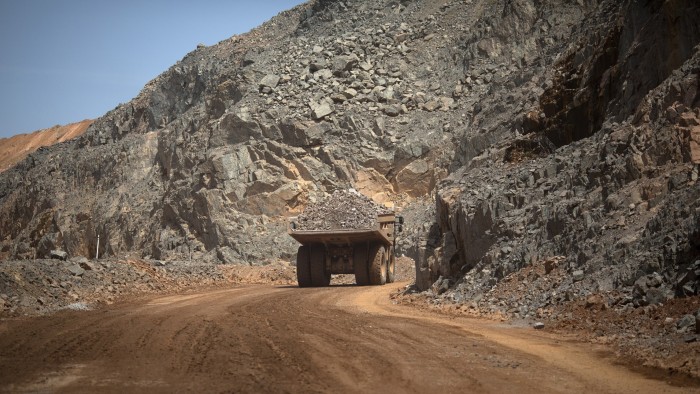Unlock the Editor’s Digest for free
Roula Khalaf, Editor of the FT, selects her favourite stories in this weekly newsletter.
A court in Mali has appointed administrators to reopen a large gold mine in the country against the wishes of its owner Barrick Mining, escalating a stand-off between the Canadian company and the west African country’s military rulers.
The judge in the capital Bamako agreed to a government request that an interim board would be set up to run the Loulo-Gounkoto mine and allow operations to resume. Barrick closed the mine in January after Mali’s government, which owns a 20 per cent stake in the project, carted off gold from the mine to a custodial bank.
The ruling is a blow to Barrick, which had said it could not restart work at Loulo-Gounkoto until the government allowed it to export its gold. The mine in the west of the country was Barrick’s second most productive gold asset last year.
Soumana Makadji, Mali’s former health minister, will lead the new court-appointed board that will operate the mine for an initial six months, according to the court.
The Canadian company launched an arbitration case at the World Bank’s International Centre for Settlement of Investment Disputes to resolve the stand-off, and last month filed a request there seeking “provisional measures” that would prevent Mali from taking further action against it, pending the resolution of the situation.
Malian authorities and Barrick are locked in a disagreement over a new mining law introduced in 2023 that gives the government a greater share of revenues and increases Malian participation in projects from the current 20 per cent to up to 35 per cent. Mali’s rulers, led by Assimi Goïta, came to power in a 2020 coup that overthrew the elected government.
Barrick chief executive Mark Bristow has repeatedly expressed optimism about reaching a deal with the government and told the Financial Times last year that he had received assurances that the company’s assets would not be nationalised. But the ruling is a reminder that a rapprochement between both sides remains unlikely.
An agreement appeared to be close in February when Barrick agreed to pay about $438mn to the state in exchange for the release of the company’s gold stock and four Barrick executives, who have been in detention for almost six months, according to people familiar with the talks.
The deal was never sealed, and a senior member of Mali’s negotiating committee told the FT in April that Barrick had signed the “wrong” agreement, warning the government had the “right to take control of the mines” if the New York-listed company did not resume operations.
Mali’s government shut down Barrick’s Bamako headquarters in April and threatened to seize control of its assets in the country.
The Malian government declined to comment.
Barrick said after the ruling that while its subsidiaries remained the legal owners of Loulo-Gounkoto, operational control now lay with the court-appointed administrators. The company described Mali’s move to block its exports and seize gold stocks, which precipitated the closing of the mine, as “unjustified”.
“These developments occurred despite Barrick’s ongoing efforts to reach a constructive and sustainable resolution,” it said. “While the company has made a number of good-faith concessions in the spirit of partnership, it cannot accept terms that would compromise the legal integrity or long-term viability of the operations.”



